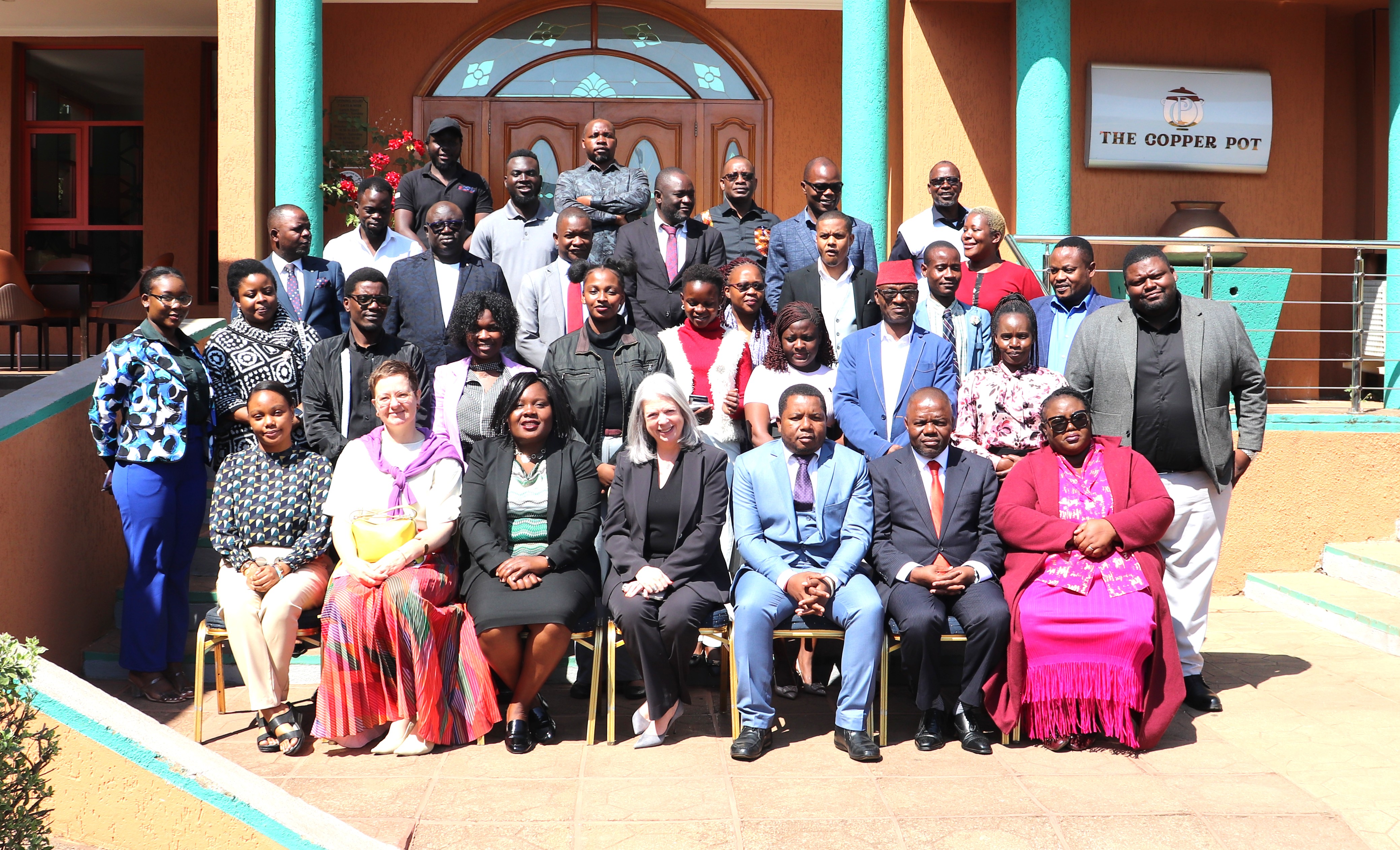MULTI-STAKEHOLDER DIALOGUE — Crossroads Hotel, Lilongwe.
Economics Association of Malawi (ECAMA), in partnership with the National Democratic Institute (NDI), convened a full day multistakeholder dialogue on Wednesday 6th August 2025 to interrogate Malawi’s public debt management, disclosure and accountability frameworks ahead of the 2025 elections. The meeting brought together civil society organizations (CSOs), policymakers, political party representatives, economic and legal experts, the youth, development partners, and the media to build consensus around practical reforms that will strengthen debt transparency and prevent unsustainable borrowing.
ECAMA organized the Dialogue to formally present the CSO Commitment on Public Debt Transparency and Accountability in Malawi . The event sought to spotlight current weaknesses in the debt ecosystem, share international and local best practice, and produce concrete recommendations that can be advanced in policy fora and political manifestos before and after the elections to anchor debt accountability.
OPENING REMARKS
The Dialogue was opened by remarks from the ECAMA Vice President, Mr. HellingsNasoni, who emphasized the urgency of fostering open discussions and buildingconsensus on reforms that can strengthen oversight, increase access to debtinformation, and promote inclusive and responsible borrowing practicesespecially as we approach the September 2025 General Elections. His remarkswere followed by we,ng remarks from the NDI Country Director, Deborah Healy,who stressed that limited access to clear and timely information on public debterodes public trust and undermines democratic accountability.
PANEL DISCUSSIONS AND KEY INTERVENTIONS
The event featured two panels that examined Malawi’s legal/disclosure framework and operational oversight arrangements.
The first panel was on ‘Strengthening Malawi’s Legal and Disclosure Framework for Public Debt’.
Some of the key observations were:
- Debt data is often outdated and not presented in user-friendly formats accessible to citizens.
- Budget discussions focus heavily on expenditure, while neglecting financing sources and embedded deficits.
- Current laws, including the PFMA, grant the Minister of Finance broad borrowing authority without clear numerical deficit limits.
- Oversight roles risk duplication — for example, between a proposed Debt Management Committee and the Parliamentary Budget Office.
- While the law requires debt to remain “manageable and sustainable,” enforcement mechanisms and deterrents for non-compliance are weak.
- Fiscal discipline is undermined by unrealistic campaign promises, weak domestic resource mobilisation, and mismatches between fiscal and monetary policy.
The second panel was on ‘Enhancing Debt Accountability, Operational Oversight, and Lender Transparency’.
Some of the key observations were:
- Lenders must observe full transparency on loan terms and conditionalities, as some loans risk worsening poverty or straining repayment capacity.
- Hidden debt remains a challenge, arising from guarantees, inter-MDA arrears, and off-balance liabilities, often linked to politically timed borrowing.
- CSOs have mostly been reactive; there is a need for proactive monitoring, routine disclosure, and public education campaigns.
- Debt information must be simplified and disseminated through multiple platforms, including offline channels, to reach rural communities.
Participants agreed that while Malawi’s legal framework provides a foundation, weak enforcement, delayed disclosure, and political pressures undermine effectiveness. Strengthening fiscal discipline, aligning monetary and fiscal policy, mobilising more domestic resources, and enforcing clearer rules around electoral-period borrowing were strongly emphasized.
THE FOLLOWING PRACTICAL RECOMMENDATIONS AND MEASURES WERE SUGGESTED:
- Introduce a mandatory pre-election debt audit and require public disclosure of all borrowing during election periods.
- Strengthen the PFMA and related laws by setting explicit deficit-to-GDP limits, clarifying borrowing approval processes, and enforcing penalties for non-disclosure.
- Reassess the proposed Debt Management Committee to avoid duplication with the Parliamentary Budget Office.
- Ensure mandatory disclosure of loan terms and conditionalities.
- Involve CSOs in pre-contract consultations with lenders.
- Support proactive CSO monitoring, plain-language debt reporting, and community-level public awareness campaigns.
- Require political parties to adopt clear financing plans and domestic resource mobilisation strategies, with manifestos subject to public scorecards and scrutiny.
ECAMA and partners will produce an analysis and scorecard of the manifestos of the five principal political parties represented in Parliament to assess how each addresses public debt and transparency. There will also be continued engagement with Parliament and the Ministry of Finance to push for routine public disclosure of debt documents; as well as strengthening youth engagement and citizen-led monitoring mechanisms that can track borrowing in real time.
ECAMA and NDI informed the audience that they will disseminate the dialogue’s communiqué and follow up with targeted advocacy campaigns. Participants were also invited to the SOE Debt Accrual Project Case Study Report Dissemination meeting which will also be used to inform the debt transparency reform process.




